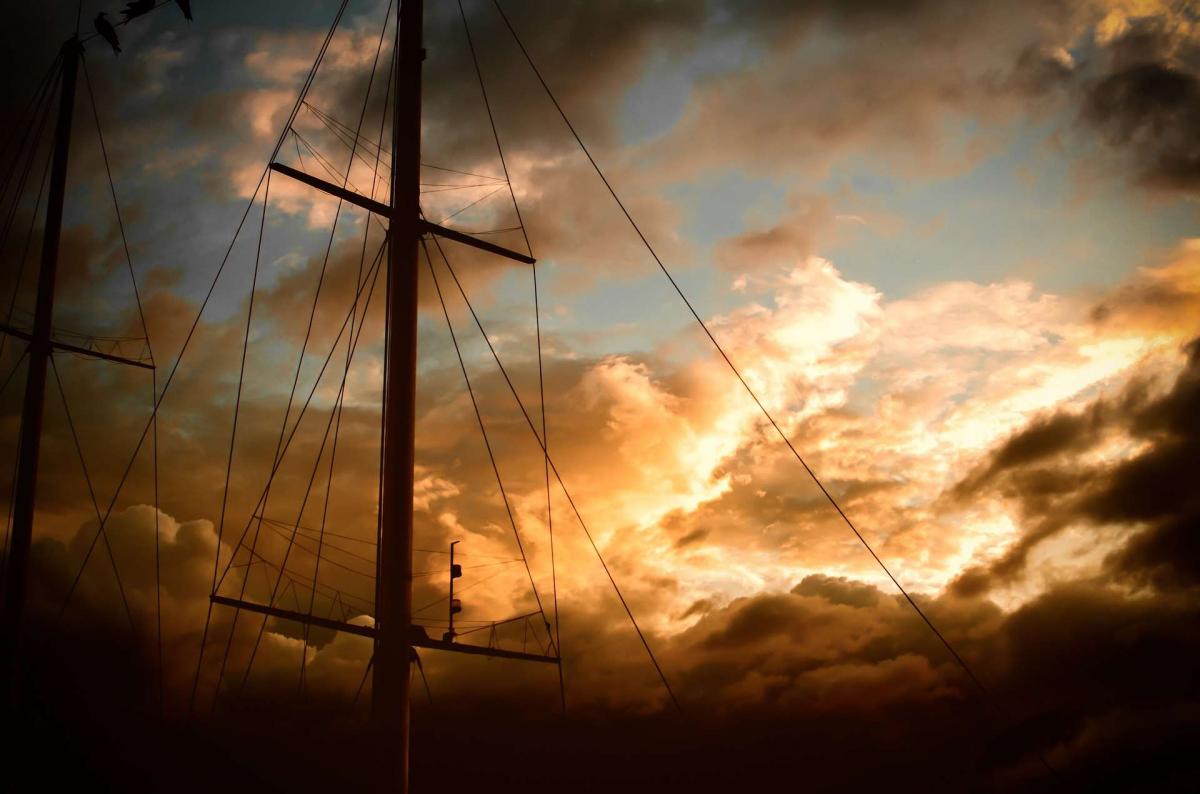Since sovereign debts and collection issues we shall always have with us, it is not amiss to look back four years to a decision by the Supreme Court of Ghana issued in June 2013, on NML Capital’s effort to enforce its judgment against the Republic of Argentina through the seizure of a sailing ship.
We at AllAboutAlpha discussed Argentina’s struggles with NML repeatedly while it was underway in the U.S. federal courts. But we didn’t discuss the fascinating debt-enforcement matter raised in connection with the ARA Libertad, one of the largest tall ships in the world, one used by the Argentine navy as a teaching vessel. Consider this a correction of that old omission.
In early October 2012, a Ghana court ruled in favor of NML impounding the Libertad while it was docked at Accra. Typically military vessels are immune from such seizures as a matter of international law, but NML argued (successfully in the local court) that Argentina had waived that immunity in the 1994 Fiscal Agency Agreement (FAA).
The International Tribunal
Argentina responded by filing for international adjudication of the matter before the International Tribunal of the Law of the Sea (ITLOS). In December of the same year, the ITLOS ordered that Ghana release the ship to Argentina, waiver language notwithstanding.
Ghana’s Supreme Court eventually agreed with the ITLOS judgment, in Republic v. High Court Accra.It agreed as to the disposition that is: it also said that the ITLOS judgment was itself irrelevant.
The Supreme Court decision is intriguingly complicated. It illustrates, if nothing else, how many twists and turns there can be, between premises and conclusions, in the making of such a decision.
Three Distinct Questions
The Supreme Court of Ghana had at least three questions before it:
- Does Ghana’s domestic law incorporate international law, and the judgments of international tribunals?
- How are sovereign immunity waivers to be regarded and construed?
- Is Ghana entitled to deny recognition to international legal rights on the basis of its own domestic public policy?
With respect to the first of those questions, the Supreme Court distinguished between two meanings of the term “international law.” There is customary international law on the one hand, and treaty-based law on the other. Customary international law, the Court said, is “part of Ghanaian law.” But the decisions of a treaty-created tribunal such as ITLOS? Not so fast. They become part of Ghanaian law only pursuant to Ghanaian implementing legislation. The court in dicta urged the country’s legislature to get to work on that. It clearly thought Ghaianian incorporation of the law of the sea treaty would be a good thing. But, as things stood, the court had no basis for treating that tribunal’s decision as pertinent to its own.
With respect to the second of the above questions, the Supreme Court agreed again with the lower court. It had interpreted the waiver language in the FAA in accord with an earlier decision by the United Kingdom’s Supreme Court, and that was res judicata.
The Swerve
So far in the court’s reasoning, it would appear that NML was winning. But then came the swerve.
The court proceeded t act on a conflict-of-laws doctrine that allows the courts of a jurisdiction to refuse to enforce a right under the law of a foreign country in cases where the enforcement of that right is in conflict with the fundamental public policy of the state of the forum. It is the fundamental public policy of Ghana to remain at peace with other countries where possible. This policy in favor of the “peace and security of Ghana” suggests that Ghana’s institutions should not involve themselves in the seizure of the military assets of foreign countries such as Argentina.
The United States itself, where of course the judgment debt arose, has a statute that forbids the judicial attachment of the military assets of another state. Though Ghana itself does not have such a statute, the court recognized the same rule judicially.
The court also recognized that its decision in Argentina’s favor on this basis will seem to some a “novel perspective.” Still, the “fundamental public policy of the State should surely include the need to preserve its security.
Thus, the ship in question was not subject to further detention in Ghana.




